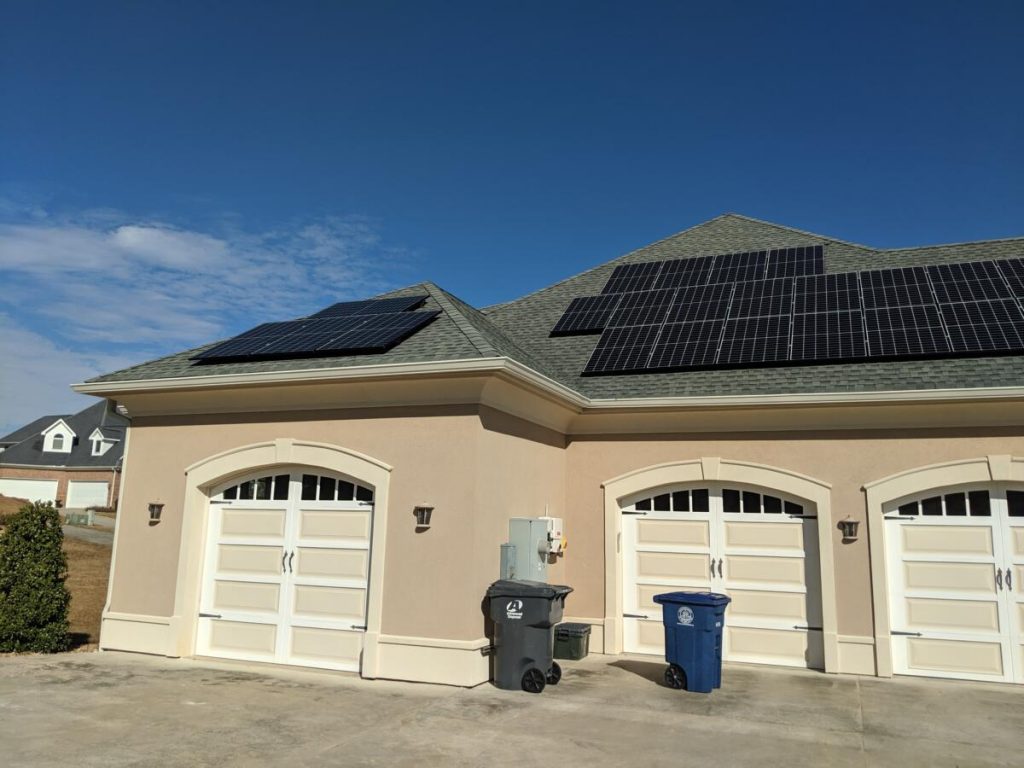Solar is a relatively new industry in Georgia, but it actually ranked as the 9th highest solar powered state back in 2017. This is largely in part due to utility scale solar panel installations from the Facebook data centers in the north to peanut, corn, and cotton farms in the South. Large installations like these helped drastically reduce the cost per watt of electricity for business owners that use enormous amounts of power.
On the residential side of things, the decision to go solar comes down a bit more to dollars and cents, with net metering playing a big part. Net metering is an electricity billing system that allows renewable energy owners to sell back their excess power to the grid. The decision to allow net metering comes down to the state and utility level.
What are the Net Metering Laws in Georgia for Solar Power?
At the state level in Georgia, there is currently no law requiring net metering policy to be adopted by utilities. This is not uncommon, as only roughly 17 states require net metering to be used by electric utilities. With this being said, your decision to go solar in Georgia in 2020 may be largely influenced by your electric utility and the contract you sign with them.
Which Georgia Utilities buy back solar energy?
Below we will outline the different utilities in our service area in Georgia and their policies to buy back excess electricity produced by solar panels. Currently, the only Electric Mempership Corporation that will not purchase extra solar in any capacity is Three Notch EMC.
This information may not be 100% accurate as it is subject to change. Please contact us for completely up to date policy for your utility.
Georgia Power
In late 2019, Georgia Power made a very exciting announcement. The utility, which currently has only 1,000 solar rooftops feeding into the grid, has offered 5,000 new residential net metering contracts on a first come first serve basis. This will account for 32 MW of new approved solar installations.
This is big news for Georgia Power. The utility, which historically has bought back electricity for as little as $0.035 per kilowatt, will now be offering buy back rates for electricity closer to retail price for the next 5,000 customers. Georgia Power is the only utility that currently pays the avoided cost for excess energy on a monthly basis.
EMC’s with Net Metering
Electric Membership Corporations throughout Georgia offer different net metering programs. The following EMC’s offer between 3.5 cents and 7 cents for excess kilowatt production on an instantaneous basis.
- Cobb EMC
- Colquitt EMC
- Central Georgia EMC – Also offers a $450 per kilowatt rebate (up to 10KW)
- Erwin EMC
- Flint EMC
- Grady EMC
- Jefferson EMC
- Middle Georgia EMC
- Mitchell EMC
- Slash Pine EMC
- Sumter EMC
Cities offering Net Metering
Both the City of Albany and the City of Thomasville offer net metering between 3.5 cents and 7 cents per kilowatt of excess solar energy produced. However, it should also be noted that these municipalities charge a monthly capacity charge per Kw installed.
What Type of Solar Energy System Works Best in Georgia?
In order to maximize your return on investment with instantaneous net metering, we have found that more you the use of the solar power that you produce, the larger your ROI will be. This is known as self consumption.
For customers that will receive between 3.5 and 7 cents back for excess solar energy produced, we have found that installing a solar panel system that covers about 25-50% of your electric usage allows for increased self consumption and increased ROI.
Once installed, you can dramatically increase your self consumption by actively prioritizing activities that use a lot of electricity such as doing laundry or running the dishwasher while the sun is shining and your solar panels are producing energy. By installing a battery backed system, you can further maximize your self consumption with load shifting.
Are you interested in solar for your home in Southern Georgia? Contact the Georgia Solar Pros today for a free estimate.

